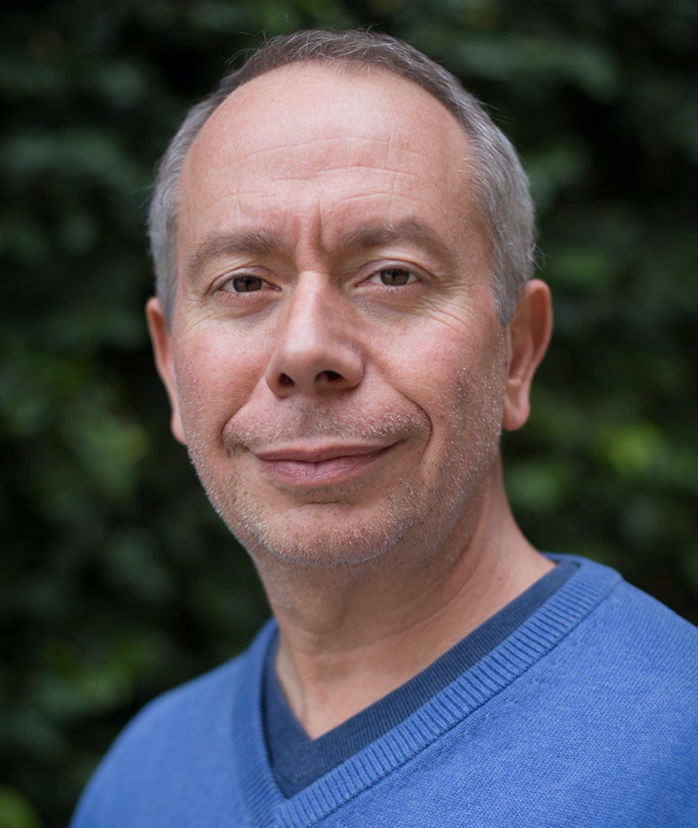VICTOR MUÑOZ PhD

Victor Muñoz is currently a Professor of Bioengineering at the University of California, Merced where he is also Director of the Center for Cellular and Bio-Molecular Machines (CCBM-CREST). He also holds appointment as Group leader in Macromolecules Structures research department at CNB-CSIC, Spain and is Associate Senior Scientist at IMDEA Nanociencia, Spain.
He did his undergraduate work at the Autonomous University of Madrid, Spain, and carried out his PhD (awarded in 1995) at the European Molecular Biology Laboratory (EMBL) in Heidelberg, Germany, under the supervision of Luis Serrano. His PhD thesis was on the experimental and theoretical study of the a-helix as fundamental element of protein structure. From this work he produced a computer program for the prediction and design of helical amino-acid sequences (AGADIR) that is widely used and has become a standard in the field. He then moved to the US National Institutes of Health in Bethesda, Maryland, as a Human Frontiers Science Program Postdoctoral Fellow in biophysics under the supervision of William A. Eaton. During his postdoctoral period (1996-2000) he performed seminal experiments on the timescale and mechanism of beta-hairpin formation and demonstrated the connection between protein three-dimensional structure and protein folding speed.
In 2000 he moved to the University of Maryland as Assistant Professor where he launched a highly successful independent research program that earned him highly coveted early career awards as well as promotion in 2005 to tenured Associate Professor at the University of Maryland. Among these awards, he received the Camille and Henry Dreyfus New Faculty Award for excellence in Chemistry in 2000, the Packard Fellowship for outstanding promise in science and engineering in 2001, and the Searle Scholarship for exceptional research in the biomedical sciences in 2002. His research activity during this period crystallized in the implementation of paradigm shifting experiments in protein biophysics that played a critical role in establishing closer connections between experimental work in protein biochemistry and physical theory. He was the major player in the discovery and experimental characterization of downhill protein folding, pioneering its thermodynamic analysis.
In 2007 he joined the Spanish National Research Council (CSIC) in Madrid, Spain, as Research Professor and holder of a 2.4 million euro Marie Curie Excellence Grant to establish a research program of international excellence in modern protein biophysics. He has developed novel approaches for the quantitative analysis of equilibrium experiments in protein folding, for estimating folding free energy barriers from differential scanning calorimetry, for the analysis of protein folding processes at atomic resolution using nuclear magnetic resonance, and for improving single molecule fluorescence spectroscopy methods to achieve microsecond-resolution. He has been elected as member of the European Molecular Biology Organization (EMBO) in 2009. In 2012 he has received an Advanced Grant from the European Research Council (ERC). In 2016 he has received one million dollars W.M. Keck Foundation Award for his approach to advancing biomedical research. His current scientific interests are described in the Research pages.